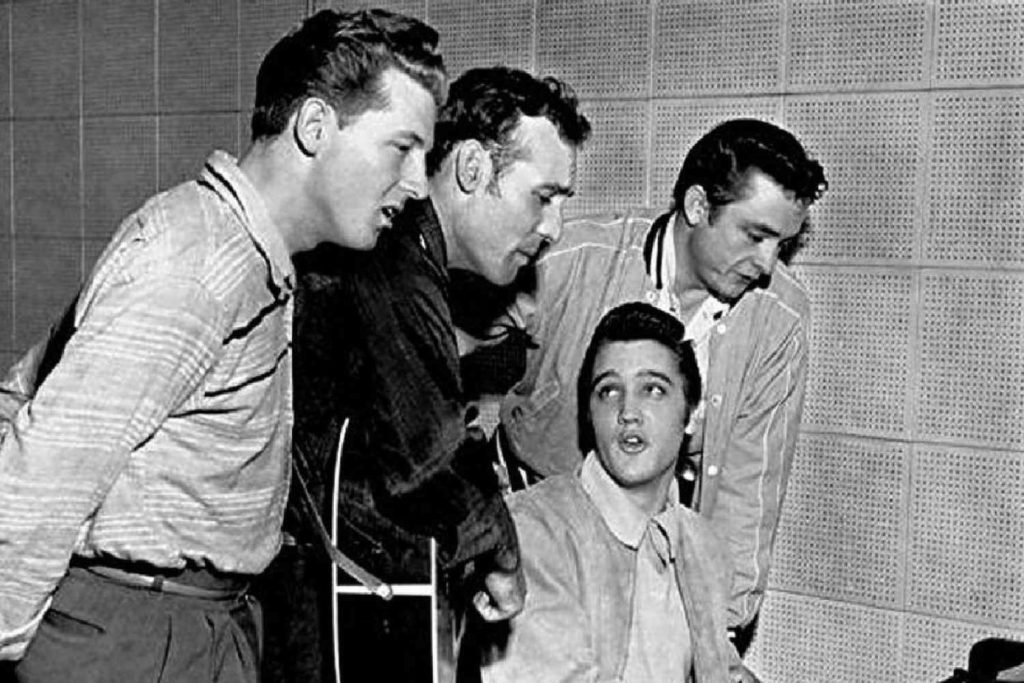Consider MØ ahead of the curve – although, in this instance, perhaps a little too literally
Not long after the singer-songwriter came home to Copenhagen to switch off after almost seven straight years of consistent touring, writing, recording, and performing, the world at large would have their hands forced to follow suit. Even through these uncharted waters, however, MØ was able to adjust and recalibrate in order to decide her next move.
“It was a very a big change going from 100 to a zero,” she says via Zoom from her Copenhagen home. “I was really just drained, mentally and physically. It was one of those things where my body had been screaming for me to take a break, but I thought it was just stress and that it’d pass. It wasn’t until I took this break that I really experienced sitting with my anxiety and my voice being effectively broken. It was hard, and it was scary. It took a couple of months before I felt like I was in a place where I could really open up about it.”
Read up on all the latest interviews, features and columns here.
This process was documented in her subsequent writing, which ultimately led to her third studio album Motordrome. It began with MØ sitting at her piano and writing the stark ballad ‘Goosebumps’ which stands among her most vulnerable songs yet. With little production and texturing beyond her voice and the reverberating piano chords, the song would effectively serve as the linchpin for what MØ was going for this time around.
“It’s not like there’s any grand conclusions,” she says. “It’s just me, reflecting on what was going on in my mind after going off of the hamster wheel and finding myself again. I started turning this feeling of defeat that I was feeling – this sadness, this gloom – into like a feeling of energy or power. It felt like I was taking control again, and you definitely hear that in the songs that followed like ‘Brad Pitt’ and ‘Live to Survive’.”
In tandem with these songs being written, MØ’s vision for the album widened. Much like writing the lyrics of each song, the singer found having her own honest conversations with herself meant she was able to break through. “It was just me having a moment of, ‘well, what do I actually love?’,” she said. “I know it sounds banal, but I just started thinking of these sounds that were cool to me: guitars, really dirty guitars; very dark, 80s-inspired synths; pop music. All of a sudden, I started making an inspirational list of songs and before I knew it I had the framework for the production side of things.”
Released in late January, Motordrome sees MØ reckoning with her innermost feelings to a hitherto unseen degree across a selection of songs that – while different in approach from her two previous albums – ultimately ring true to her sophisticated, intricate brand of electronic pop. A slew of collaborators were enlisted to bring MØ’s vision to life, including prolific producer SG Lewis (Dua Lipa) and fellow Scandinavian Caroline Ailin (Katy Perry), effectively creating a circle of trust around the album and its songs. Knowing she would be dealing with such sensitive content, MØ deemed it imperative those working on Motordrome were people she had faith in seeing the project through.
“It’s about finding people where you feel like you can be yourself,” she says. “You have to both be in this place where you can really workshop your ideas together. In the past, I’ve tried working with people where it’s difficult to take control, or feel like they get your vision. If you find the right people to work with, then it’s just a way of enhancing, developing and lifting up the ideas that you have as an artist.”
She also points out that, despite a list of over a dozen co-writers and co-producers, this was a refreshingly intimate experience for her. “The album that I made before this one (2018’s Forever Neverland), there were even more people involved in it,” she says. The creation of Motordrome, however, wasn’t without its own set of stumbling blocks.
“I think that the thing that I struggled the most with was in the details. The foundations for all of it were always there and sounded good, but it was questioning, ‘do we take this in a more guitar-driven direction? More synth-y? More electronic? Fully organic?’ That was a constant discussion. Some of the producers that I work with – for instance, Yangze and Ronni Vindahl – they’re super different from one another. This is a good thing, because then you get something from both worlds. Having said that, it’s always kind of like this ongoing back-and-forth, y’know? It did take some work, but I really feel as though we got there.”
MØ’s trust in her collaborators also came in the arrangements. Primarily a singer, her wishes for the sonic direction of each song largely falls to those in the studio with her. “I love throwing up references or sounds, or even describing the sounds that I want,” she says.
“I’m all about just really getting into the universe of the song and the feeling of it all. That was especially handy on the song ‘Punches’, because I knew the exact melody I wanted. I asked the players, can you do it like this?” MØ then enunciates the distinctive downward scale that serves as a recurring motif. “They picked it out by ear, and were like, ‘did you mean to do it like this?’ And I did! It was amazing.”
With Motordrome now out in the world, MØ simply hopes that those that hear it can see parts of themselves in the parts of her that are scattered throughout. “I hope that people can relate their own life to it,” she says. “When I listen to other artists, I always look for something that I can grab onto, so that I won’t feel alone. I hope people will feel that way with this album, too.”
Motordrome is out now via Columbia Records/Sony.







